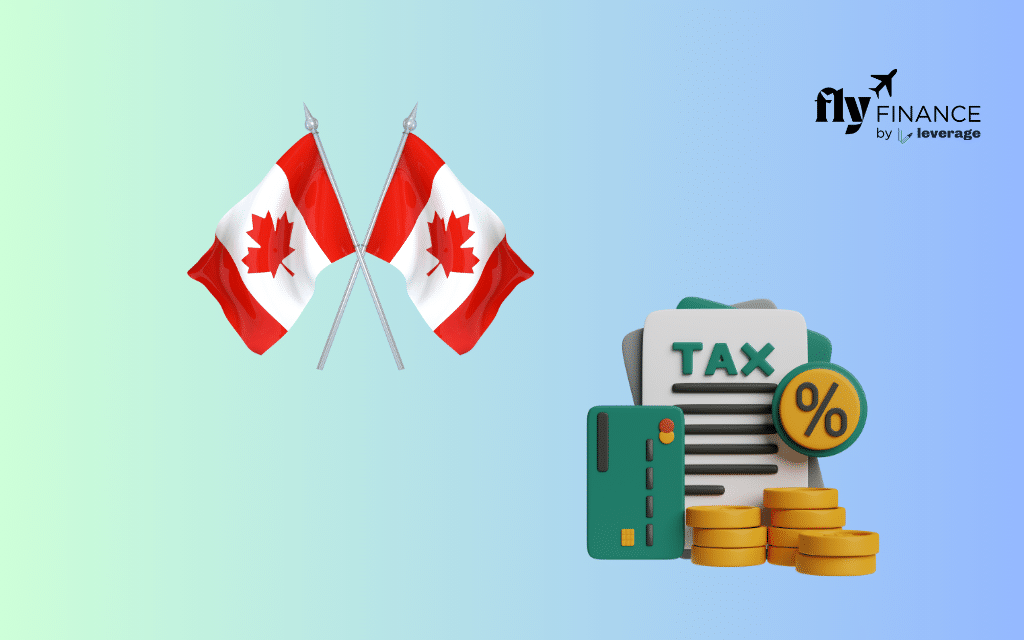An international student travelling to Canada to pursue higher education must know about the tax rules in the country. The Tax System in Canada is based on your residency status which is determined by the CRA (Canada Revenue Agency). It is based on factors such as the duration of stay, residential ties and applicable tax treaty between Canada and the home country. This means that residents, non-residents, deemed residents, and non-deemed residents of Canada are liable to pay taxes in the country. However, tax obligations and requirements are different for all these categories.
An international student is considered a resident of Canada who is completing a full-time degree course on a study permit and thus they must pay taxes too. In this blog, we will cover all the necessary information on taxes for international students in Canada. Continue reading to find out more-
Table of contents
Also Read: About to complete your studies or completed already? Learn about how to repay your student loan in Canada and ease the financial burden.
Tax for International Students in Canada
International students in Canada who work part-time or earn income from investments, business, or any other source like research assistantship and teaching, have to file taxes. If international students do not owe any tax for the current period but might earn income in the future through on-campus/ off-campus/ or co-op placements, still have to file a tax return.
This helps them receive benefits like tax credits (like chances to lower taxes later) and GST credits (payments to offset all or part of the tax paid on purchases). Income that is received from outside Canada also needs to be reported to the Canadian Government.
Note: It is ideal to receive professional tax advice from a tax consultant in Canada as the Canadian tax system is quite complex and different.
Documents Required to File Tax for International Students in Canada
Tax year in Canada runs from January to December each year and 30 April is the deadline to file taxes. For this purpose, international students require certain documents. These are-
Students can get a SIN only if they have a valid study permit or work permit that allows them to work in Canada.
ITN (Individual Tax Number)
For those who are not eligible for SIN need to apply for ITN. This is for international students who receive scholarships and bursaries.
T2202
Students must submit a T2202 document to prove that their tuition fees have been paid for the tax year. This can be easily downloaded from the student portal of your university’s website or SSC (Student Service Centre).
T4
If you are employed in a part-time job role, your employer will provide you with the T4 document stating the employment earnings and deductions for the tax year.
T4A
This form applies to the students who receive taxable tuition waivers on getting scholarships, bursaries, or teacher certificates in the tax year.
Also Read: Did you know that you can get an income tax rebate on education loans? Check out how to avail, calculate, and claim tax deductions.
How to Apply for Tax for International Students in Canada?
Once all these documents are handy, taxes for international students in Canada can be paid online (through free tax software- NEFTILE), through paperwork, or at Free Tax Clinics where volunteers do it for free. Once all these documents are handy, taxes for international students in Canada can be paid online (through free tax software- NETFILE), through paperwork, or at Free Tax Clinics where volunteers do it for free. Check more about filing taxes in Canada through Netfile-
- NETFILE software is more accurate and error-free which enables international students to do it all by themselves.
- Immediate confirmation is received on filing your tax returns.
- Applicants need not send in receipts until asked.
- Filing taxes and receiving refunds is quicker (within 2 weeks).
FAQs on Tax for International Students in Canada
The Tax System in Canada is based on your residency status which is determined by the CRA (Canada Revenue Agency) based on factors such as the duration of stay, residential ties and applicable tax treaty between Canada and the home country.
An international student is considered a resident of Canada who is completing a full-time degree course on a study permit and thus they must pay taxes too. Students who work part-time or earn income from investments, business, or any other source like research assistantship and teaching, have to file taxes.
If international students do not owe any tax for the current period but might earn income in the future through on-campus/ off-campus/ or co-op placements, still have to file a tax return. This helps them receive benefits like tax credits (like chances to lower taxes later) and GST credits (payments to offset all or part of the tax paid on purchases).
International students require certain documents like the SIN (Social Insurance Number), ITN (Individual Tax Number), and additional documents like T2202, T4, and T4A to file taxes in Canada.
Taxes for international students in Canada can be paid online (through free tax software- NEFTILE), through paperwork, or at Free Tax Clinics where volunteers do it for free.
This was all about tax for international students in Canada. To know about education loans, the loan application process, the best bank accounts for students, forex and banking experience for global students or international money transfers, reach out to our experts at 1800572126 to help ease your study abroad experience.
| Related Blogs |
|---|
| Busting Myths Around GIC Remittances in Canada |
| Best Canadian Student Bank Accounts |
| 10 Indian Banks providing education loans to study in Canada |
Follow Us on Social Media





























